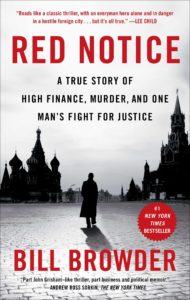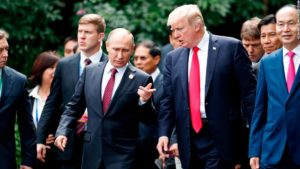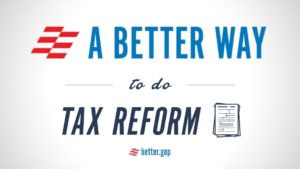 It’s All Fun and Games Until….
It’s All Fun and Games Until….
The first half of Red Notice reads not unlike a 1990s emerging market version of Michael Lewis’ Liar’s Poker:1 Browder the investment ingenue learns about the quirky world of Eastern European finance in the early 1990s. He describes hilariously and ruefully the characters he meets and the insights he gets into early opportunities following the fall of the Berlin Wall. The consulting gig failure in rural Poland. The terrible job working for soon-to-indicted Robert Maxwell. Valuing an aging ship fleet above the Arctic Circle for Salomon Brothers, and finding tremendous value in what others thought was a scrap heap.
Browder writes breezily, humorously, humbly, even about the years in which he gained financial experience and stature – just as Lewis did. His novelistic details of quoted conversations, what people wore, and what they ate over meals – these experiences cannot be literally true based on memories from 20 years ago – they have the ring of truth and the flow of narrative. It’s a great read. Super fun.
Then Browder creates his big breakthrough – as maybe the only American to figure out how to profit from the vouchers that privatized Russian national wealth and created the Oligarchs – as a Salomon Brothers Vice President. His greatest success, becoming the largest foreign investor in Russia by 2005 with Hermitage Fund, also begins the dark chapters of his life, and of the book.
The Second Part of the Book
The fun turns to concern, then fear, and then horror. Browder handles the narrative mood changes well. The central problem is that he became a thorn in the side of Russian businessmen by attempting a version of “corporate good governance” campaigns within Russia. While this made him and his funds money in the beginning, eventually his methods bumped up against the corrupt mafia of the Russian state, the Oligarchs, and their Capo, Vladimir Putin. The Russian state fought back.
 Unlike what most investors would do – either leave Russia completely or just participate in the corruption – Browder doubles down on his tactics.
Unlike what most investors would do – either leave Russia completely or just participate in the corruption – Browder doubles down on his tactics.
From here, Browder’s narrative gets very, very dark.
Browder attempted to embarrass corrupt members of the business elite, including eventually Putin, through exposure. Nearly every in-country business associate of Browder’s received threats from the Russian state and quasi-state mafia. His lawyer Sergei Magnitsky2 was arrested, imprisoned, tortured, and killed. A central, unforgettable, message of Browder’s book is just how dangerous and immoral Putin’s government is.

I have to assume that there is a very real chance that Putin or members of his regime will have me killed someday. Like anyone else, I can’t mention most of the countermeasures I take, but I will mention one: this book. If I’m killed, you will know who did it. When my enemies read this book, they will know that you know.
Red Notice has garnered a tremendous amount of attention since publication in 2015, but given the ongoing current events, it still feels like 95% of Americans aren’t aware of the true nature of the Russian state under Vladimir Putin.
Please see related posts:
All Bankers Anonymous books in one place!
Post read (2011) times.
- And I mean that as the highest form of praise. Lewis has been the reigning G.O.A.T. of finance journalists since the late 80s. ↩
- The “Magnitsky Act,” named for Browder’s lawyer, imposed sanctions on Putin’s inner circle for corrupt acts and human rights violations. The Russian Parliament responded by ending US adoptions of Russian children. The supposed cover story for the now-infamous “Trump Tower” meeting involving Donald Trump Jr, Paul Manafort, and Russians in June 2016 offering dirt on Hillary Clinton was a discussion of “Russian adoptions.” ↩




